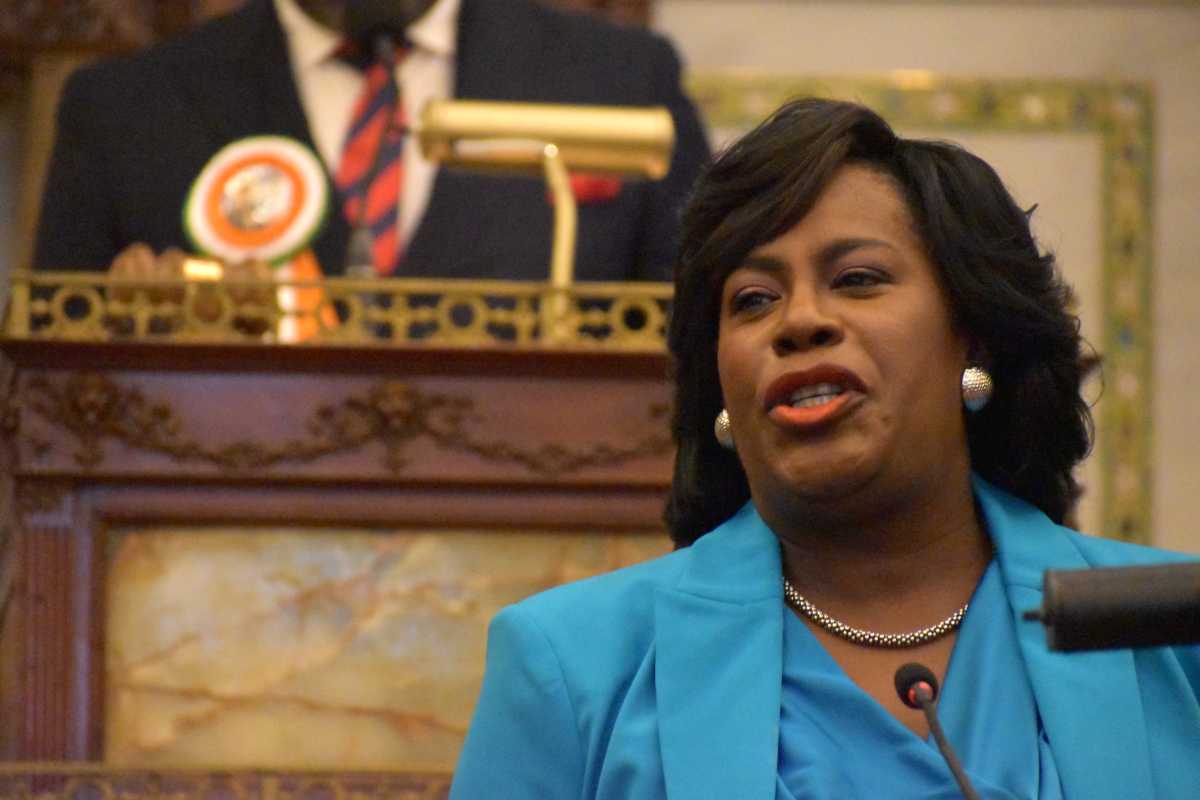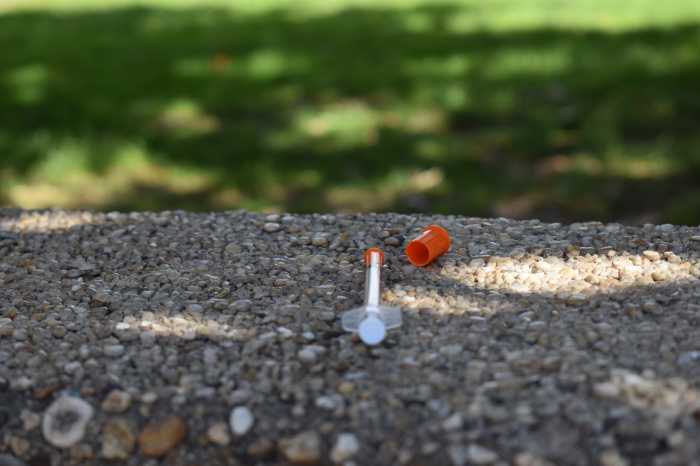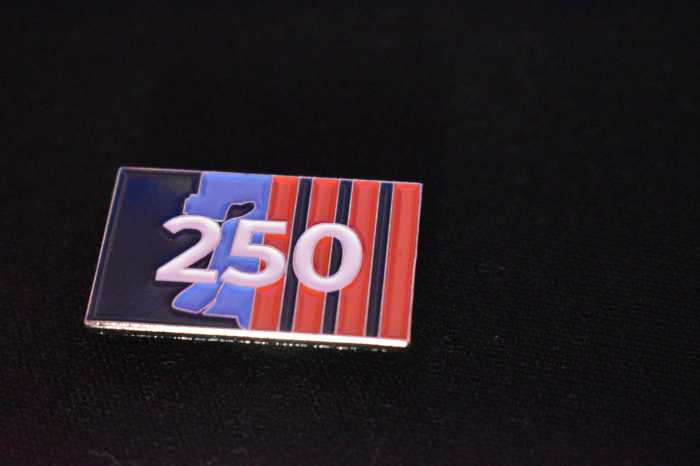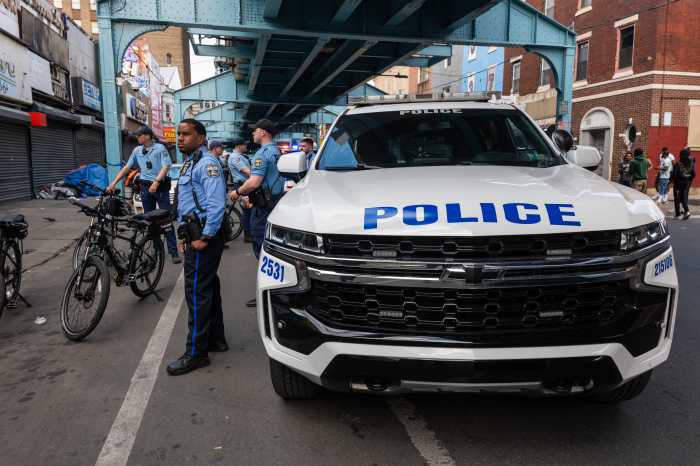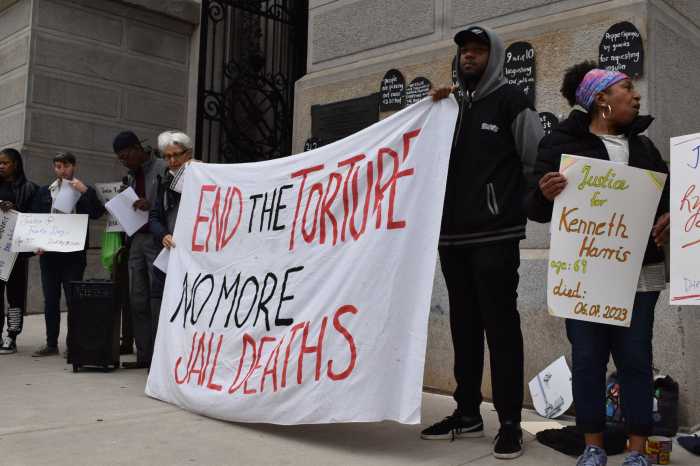Mayor Cherelle Parker, in her second budget address, proposed borrowing $800 million for affordable housing programs and cutting the city’s business and wage taxes.
The $6.7 billion spending plan, unveiled Thursday, also invests in expanding many of Parker’s first-year priorities, including year-round, extended-day schooling, creating a municipal “wellness” ecosystem for homeless drug users and neighborhood cleaning.
Affordable housing
Parker has pledged to create or preserve 30,000 units of affordable housing. To reach that goal, she is asking lawmakers to approve an $800 million loan, with half of the money to be bonded in the next fiscal year, beginning July 1.
Few specifics have been released about the administration’s broader housing plan, but the mayor said details will be presented at a March 24 special City Council session.
“This cannot wait. If you know anything about me, you know I understand the urgency in our communities,” she said. “We’re here to take action. Philadelphians need more housing, and they need it now. More housing now.”
In February, Parker signed an executive order creating the Housing Opportunities Made Easy, or H.O.M.E., initiative. As part of the strategy, stakeholders were given a month to produce recommendations to remove barriers and spur the construction of new homes.
The mayor’s proposed budget scraps a 1% construction impact tax, which city officials said generated about $3.5 million a year. Parker said the levy discourages builders.
Tax cuts
The administration is advocating for cuts to wage tax and both portions of the Business Income and Receipts Tax (BIRT). If passed, the measure would be the first to cut all three rates in 17 years, according to the Mayor’s Office.
Echoing the city’s business community, Parker said Thursday that Philadelphia has “a tax structure that’s hindered growth and stunted the job creation that we so desperately need.”
Unlike many jurisdictions, the city separately taxes a business’s overall earnings and profits, and more revenue is generated from the wage tax than any other levy.
In addition to year-by-year reductions, Parker wants to codify a plan to eliminate BIRT’s gross receipts portion and half the tax’s net income rate by the 2039 fiscal year. That’s seven years after Philadelphia’s long-troubled pension fund is expected to be fully funded, freeing up more than $430 million a year, according to administration officials.
The Tax Reform Commission, a body convened by Council President Kenyatta Johnson, recommended getting rid of both portions of BIRT over the next eight to 12 years in a report published last month.
“Even before I could get in the building today, I started getting some messages from people saying, ‘This is not enough,’” Parker said. “This is what we can afford to do, and I shall not be moved on this delicate balance of enacting business tax reform while protecting (our) fiscal stability as a city.”

Johnson, following Parker’s address, called the proposed reductions a “step in the right direction.” “You call it tax cuts; I call it tax investments,” he told reporters.
The Parker administration is reluctantly offering a repeal of a BIRT exemption that does not tax an enterprise’s first $100,000 in revenue, due to legal challenges alleging it violates the state’s uniformity clause, the Mayor’s Office said.
A $30 million fund to help small businesses cope with the change is included in the budget. Some may be filing a BIRT return for the first time.
Residents would pay more under the mayor’s plan in a few areas.
Parker’s team is advocating for an increase to the real estate transfer tax to help pay for her housing initiatives, and the administration wants to raise the document recording fee by $3 to fund efforts to resolve tangled titles.
In Center City and the surrounding neighborhoods, drivers would pay $4 an hour to park, up from $3. Most of the additional revenue would flow to the School District of Philadelphia, which stands to gain an extra $4 million a year, officials said.
Trump effect
Looming over the City Hall budget talks this year is the potential for the Trump administration to severely curtail federal spending.
Rob Dubow, the city’s finance director, said Washington, D.C., has already canceled a couple of grants “in the sustainability area.” In the 2024 fiscal year, Philadelphia received $2.8 billion in federal grants.
“Given the large amount of grants that we get, any reduction could have a really big impact on our budget,” Dubow said at a budget briefing.
Philadelphia’s economy – and the city’s tax revenues – relies on large educational and medical institutions, which could also be negatively impacted by slashes to federal funding.
Parker’s proposal sets aside $95 million to specifically account for fluctuations in federal spending.
“I know there is uncertainty in the air right now,” she said in her address. “People don’t know what to expect from their government, and uncertainty can breed fear. I want the people of Philadelphia and our city employees to hear me, your city is here to keep you safe and to safeguard your basic rights.”
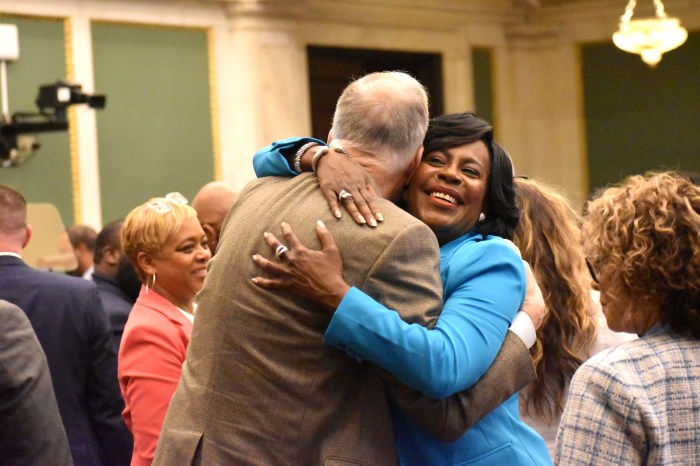
Councilmember Rue Landau, a Democrat often aligned with progressive lawmakers, praised several of the mayor’s priorities but questioned the tax proposals.
“How is the city going to balance proposed revenue cuts at this time as we face down pending federal funding cuts that will lead to a loss of services?” she said Thursday in a statement.
Dubow told members of the media that the city anticipates losing out on a combined $17 million in the 2026 fiscal year from the BIRT and wage tax cuts.
Odds and ends
Parker announced that the Philadelphia Police Department’s new forensics lab, which has been in the works for years, will be located at 4101 Market St. in West Philadelphia. She is proposing spending $67 million over five years on the project.
The mayor’s budget funds the implementation of her Extended Day/Extended Year pilot at 10 more district schools and five charters, bringing the total number of schools participating in the initiative to 40.
To expand capacity at Riverview Wellness Village, the city’s recently opened drug recovery facility near the county jails in Holmesburg, Parker is asking for $75 million from the capital budget. Her plan also devotes $216 million in the coming years to compensate nonprofit treatment providers at Riverview and other locations.
“We believe that what we are doing with our wellness model at Riverview can set the standard for how we treat the homeless and unhoused throughout our city,” Parker said.
Earlier this month, Council approved $45 million in a mid-year transfer for expenses related to festivities surrounding the 250th anniversary of the signing of the Declaration of Independence, which will be commemorated next year. The administration is proposing about $40 million in additional 2026 funding, including $16 million for organizations hosting events.
A twice-a-week trash pickup program that launched in December in Center City and South Philadelphia will be expanded into North Philadelphia over the next 12 months, the mayor said.
Parker also announced that the Martin Luther King Jr. Drive Bridge near the Philadelphia Museum of Art, which has been closed for construction for two years, is expected to reopen to traffic this year, tentatively in September.
What’s next
Beginning March 25, Council will hold a series of hearings on aspects of Parker’s plan, analyzing allocations for major municipal departments.
Lawmakers are sure to advocate for some of their own priorities to be incorporated into the mayor’s proposal. Council and Parker must reach an agreement on a finalized budget before the end of June.



